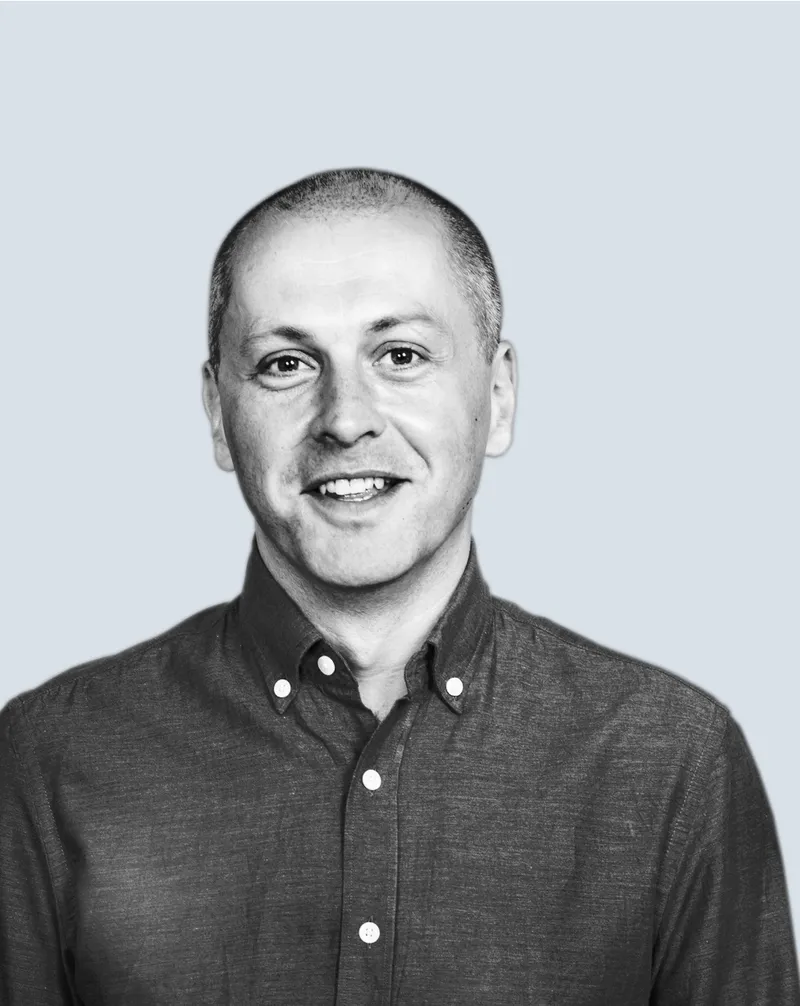Meet Oliver Dyer, Founder of Skew
Drawing from his MA Fashion at Central Saint Martins and trend forecasting at IWS and International Textiles, Oliver launched Skew to bring style to the licensing industry, introducing a novel trending process to BBC Worldwide, HIT and Nickelodeon. With a jump from design to creative direction, Oliver expanded Skew from trend to a full-service offer, launching core guides for Cartoon Network, Fremantle, and Ubisoft.
Oliver’s move to business development and a focus on strategy won Skew fans across brand, sport and culture with Formula One, The British Museum, and The National Trust turning to Skew to develop their brand extension. He’s now on a mission to bring brand extension into the 21st century with effective methods built from the ground up to make creative accountable, strengthen commercial relationships, and bring your fans closer to your brand.

JUSHNA: What was the reason for choosing a design Degree and MA?
OLIVER: When I was doing GCSE’s a new Headmaster started at our school he had an MA, I found out 'MA' stood for MASTER of art and I thought this sounded really cool.
O: I couldn’t really afford to do the MA. I'm lucky that my parents helped but they couldn’t afford both the fees and living expenses. Saint Martins MA Fashion ran industry projects that came with cash awards, so I had to win them or I couldn’t pay the rent. Well known brands set print briefs and it was joining those dots between a brand, a message and a consumer that just made sense to me right away. I won every prize.
FLO: What was your big break?
O: A trend agency asked to see my folio. I had some stripe prints in there that I’d made by dragging a bunch of flowers across a colour photo copier. The agency interviewed me, assumed I’d designed these stripes using Photoshop, offered me freelance print work and set me up using their Macs. So I walked into my first freelance gig, ‘Photoshop for Dummies’ hidden in my bag and learned on the job. Immense pressure is a great motivation to learn. Fast.
SAM: What made you want to start Skew?
OLIVER: One of the team at that same forecasting agency left and got a job at BBC Studios (then Worldwide). She asked me to do a colour and graphic trend forecast, just like we did at the agency but for their their biggest children’s TV show - Teletubbies. At the time, it was standard just to ‘peel’ the look of the show off the TV screen and wrap it around products. Style guides were very dry, with a logo, packaging, old school character line-work work, some stills from the show and that was pretty much it.
We created the first ever trend led asset packs and Teletubbies consumer products exploded. Teletubbies opened doors initially at HIT, Disney and Nickelodeon. The opportunity to bring style to brand extension was right in front of me. I wrote the business plan to launch Skew soon after.
SARA: Is there a person who influenced you more than others?
OLIVER: Professor Louise Wilson, course director of MA Fashion at St Martins. She taught me to have respect for my own work. She was furious if you talked your own work down or presented it in an unprofessional way. She forced the understanding into me that if you don't respect and fight for your own work no one else will. She would tear shreds of anyone that hadn’t considered who your design work was for. Fashion is a business. It’s a creative business but she drilled into me that fashion is commercial design.
JUSHNA: If you weren’t running Skew what would you like to be doing?
OLIVER: It was coin toss for me between design and tech. I think if I’d not gone to art school then I’d have been in tech start-ups for sure. I love that we’re working in the game space more, how the metaverse is unfolding is fascinating. Brands need guidance on how to extend into it and we have something to offer.
JUSHNA: Highlight of your career so far?
OLIVER: I’m an adult fan of LEGO so delivering the packaging for the first Doctor Who LEGO set (21304) was amazing. We’ve had so many money-can’t-buy experiences with brands over the years; road trips across the states, all nighters in Monaco, expert behind-the-scenes tours of UK landmarks but visiting the actual TARDIS set was unique.
KIRAN: What has been your greatest achievement at Skew?
OLIVER: My greatest achievement is the agency. It’s about the people, about seeing the team develop. Winning a big pitch is a like an adrenaline shot, you get a high but its transient. My job means that while the team are delivering I have to think about what’s next. But there’s a permanence to seeing the team grow as individuals and professionals. You see that most clearly now that we’re all in on remote working. It’s clearer than ever to me now that Skew is the people not the place.
SARA: What do you think Skew will look like in another 10 years?
OLIVER: I’m predicting the death of the style guide. We were the first to bring style to the licensing industry with trend led asset packs. But many parts of the industry are stuck using methodology that is recognisable from thirty years ago. At the end of 2021, I spoke to an industry leader from a huge entertainment brand that told me that 90% of their global creative assets NEVER get used. NINTY PERCENT! Two others told me proudly of style guides they'd had developed at huge cost but when pressed admitted were yet to be used by anyone. The brand extension industry is broken and we’re on a mission to fix it.
SAM: What makes Skew unique?
OLIVER: We’re the only agency that comes from a commercial strategy and forecasting background. For the most part, other agencies that have an interest in brand extension are design practitioners. We started with insight, our strategic perspective is our greatest strength.
FLO: Want to end with a philosophical one? After 20 years what have you learned?
OLIVER: I’ve learned how to be true to myself as an introvert in a business that’s all about people. Agencies are ALL about people. The people in the agency. The people we work with and the people they’re trying to reach. Learning about where I gain my energy and how to direct that positively has come from a deep understanding that agencies are people businesses.



















